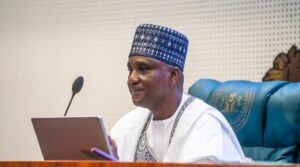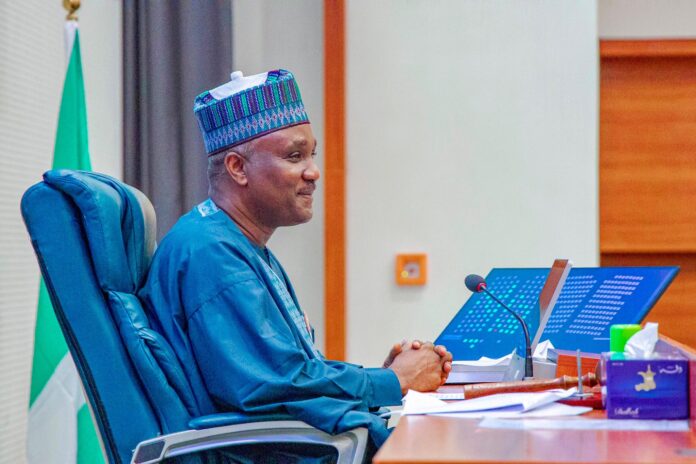Speaker of the House of Representatives, Tajudeen Abbas, has urged a fundamental transformation of the local government administration in Nigeria. He articulated this need during the opening of a national dialogue focused on local governance and constitutional amendments in Abuja, organized by the Special Ad-hoc Committee on Constitution Review.
In his address, delivered by Deputy Speaker Hon. Benjamin Kalu, Abbas expressed concern that the current local government framework undermines democracy and raises significant questions about the integrity and functionality of governance at this level.
He noted that this dialogue is part of ongoing consultations aimed at gathering citizens’ opinions to create a constitution that truly reflects the will of the people. Abbas recalled a prior dialogue aimed at enhancing the political participation of Nigerian women, highlighting the importance of inclusive decision-making.
“This discussion centers on a vital component of our governance structure: local government,” he stated. “Often regarded as the nearest tier of government to citizens, local governments are crucial for service delivery, community development, and ensuring that the voices of the populace resonate within the governance framework.”
For local governments to effectively perform these roles, Abbas emphasized the necessity of granting them a degree of autonomy that enables them to address the specific needs of their communities. He lamented that despite the admirable intentions behind the establishment of local governance in the constitution, numerous challenges continue to obstruct their effectiveness.
He identified persistent issues such as inadequate funding, lack of autonomy, insufficient capacity, interference from other governmental levels, and corruption as long-standing obstacles that have hindered local governments for many years. “These challenges not only stifle local governance but also impede national development. Reform is urgently needed,” he asserted.
Abbas pinpointed inadequate funding as a major hurdle, explaining that local governments often operate with budgets that fall short of meeting their essential responsibilities. This financial limitation restricts their ability to provide critical services including education, healthcare, infrastructure, and sanitation, resulting in poor living conditions for many communities.
He further indicated that local governments’ lack of independence is a significant issue, as they are often under the control of state governments, which can interfere with their operations and decision-making processes. This undermines innovation and accountability at the local level.

Additionally, Abbas pointed out that many local government officials lack the training and skills necessary for effective governance, leading to diminished public trust in local administration. He also highlighted the pressing concern of the quality of elections within local government councils, asserting that non-competitive elections undermine democracy and threaten local governance integrity.
“When elections lack competitiveness, it reflects a distortion of democratic principles. This situation is alarming and allows unqualified individuals to infiltrate local councils, undermining effective governance,” he remarked.
While acknowledging the efforts of President Bola Tinubu’s administration to strengthen local governance, he noted that the recent Supreme Court ruling mandating local council elections and direct funding disbursements represents a significant step toward enhancing local government autonomy.
“This ruling reaffirms our commitment to uphold democratic principles. However, despite these advancements, comprehensive reform remains essential to address ongoing issues effectively,” he insisted.
Abbas called for constitutional reforms to ensure greater financial independence for local governments and to empower them with more authority over their affairs. He emphasized the importance of investing in training programs for local government officials to equip them with the necessary skills for effective service delivery.
He concluded by stressing the need to ensure transparency and fairness in local council elections, advocating for collaborative efforts with state governors and legislative bodies to strengthen local governance. Abbas expressed his support for the initiatives undertaken by the House Committee on Constitution Review in collaboration with state governors and assembly speakers to reach a consensus on this crucial matter.




